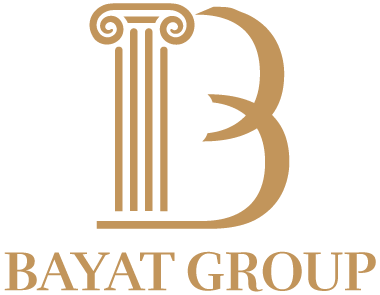Start-Up Visa programs are immigration pathways designed for entrepreneurs with innovative business ideas. They allow founders to relocate, establish their ventures, and gain legal residence in another country. Many entrepreneurs turn to these programs to reach new markets, attract investors, and build long-term security for themselves and their families. But not all programs are the same. They differ in eligibility, benefits, costs, and processing speed. Choosing the right one means carefully weighing which program best matches an entrepreneur’s goals.
What is a Start-Up Visa Program?
A Start-Up Visa is a residence permit created for entrepreneurs who want to build new and innovative businesses. To qualify, applicants are usually expected to present a scalable idea, secure backing from an incubator, investor, or government body, show enough funds to support themselves, and often meet basic language requirements. Unlike traditional investor visas, which focus mainly on the amount of money an applicant can bring in, Start-Up Visas place more weight on innovation, growth potential, and the ability to create jobs.
Key Benefits of Start-Up Visa Programs
Start-Up Visa programs offer several key advantages for entrepreneurs:
- They provide access to larger and better-connected markets, making it easier to grow a business internationally;
- Many programs lead to permanent residency and sometimes citizenship, offering long-term stability for founders and their families;
- Applicants often gain entry into innovation ecosystems, with incubators, mentors, and investors ready to support new ventures.
- Families can usually relocate together, with spouses and children able to benefit from local education and healthcare.
- Being accepted into a program adds credibility, which can help in attracting customers, partners, and outside investment.
- Some programs also give flexibility to start small and scale up, allowing entrepreneurs to grow their ideas in a supportive environment.
- Being approved under such a visa can help attract customers, partners, and funding, because there is external validation (like endorsement or incubator approval).
The Most Popular Start-Up Visa Programs
Here are three well-known Start-Up Visa programs with their main features, requirements, and strengths.
Canada Start-Up Visa (SUV) Program
Canada is one of the most popular destinations for entrepreneurs looking to relocate through a Start-Up Visa. The program was launched as a pilot and became permanent in 2018. It is designed for innovative founders who can create businesses with growth potential and contribute to the Canadian economy. What sets it apart is its strong link with private sector investors, incubators, and accelerators, which help new businesses take root.
Main Features
The program connects entrepreneurs with designated organizations in Canada, which can be venture capital funds, angel investor groups, or business incubators. Successful applicants can first relocate with a work permit and later apply for permanent residence. In most cases, permanent residence is granted in about 18 months, and after three years of holding permanent resident status, it becomes possible to apply for Canadian citizenship.
Requirements
- A letter of support from a designated organization. This may involve an investment of at least CAD 200,000 from a venture capital fund, CAD 75,000 from an angel investor group, or acceptance into an incubator program.
- At least 10% of the voting rights in the business, with the applicant and designated organization together holding more than 50%.
- Language ability at Canadian Language Benchmark (CLB) level 5 in English or French.
- Proof of settlement funds, starting at CAD 12,960 for a single applicant and increasing with family size.
- Active participation in managing the business, which must be incorporated and operating in Canada.
Strengths
- Direct pathway to permanent residence;
- Access to Canada’s high standard of living, universal healthcare, and excellent education system;
- Family members can be included in the application, and permanent residents can sponsor additional relatives;
- Strong support system through incubators, investors, and government-approved organizations.
- Applicants may relocate with a work permit while their permanent residence application is processed.
While the program has many advantages, there are also challenges. Securing support from a designated organization can be competitive, and the ownership requirements may complicate some business partnerships. Living costs also vary across provinces. Despite these considerations, the Canadian Start-Up Visa remains one of the most appealing programs for entrepreneurs seeking both business opportunities and long-term security.
United Kingdom — Innovator Founder Visa
Even with reports of wealth moving out of the UK, it remains a top destination for entrepreneurs, and London continues to stand as a leading global financial hub. The Innovator Founder Visa is designed for individuals with the skills and vision to establish a new, innovative, and scalable business in the UK. It offers a clear pathway from starting a business to permanent residency and, eventually, citizenship.
Main Features
The visa is issued for three years and can be extended if the business continues to meet requirements. After three years, holders may apply for permanent residency (Indefinite Leave to Remain, ILR), and after five years of living in the UK—including at least one year with ILR—they can apply for citizenship. The program also allows applicants to bring their spouse and children, giving the whole family access to the UK’s high standard of living, education, and healthcare. On top of this, entrepreneurs gain access to one of the world’s strongest financial services industries, world-class infrastructure, and a thriving technology and innovation ecosystem.
Requirements
- A business idea that is new, innovative, viable, and scalable, endorsed by an approved endorsing body.
- Active involvement in the business, with progress reviewed during the visa period.
- English language proficiency at CEFR level B2.
- Adequate personal savings to support living expenses in the UK.
- While there is no fixed minimum investment amount, endorsement typically requires at least £50,000 in funding, with higher amounts needed for joint ventures (£200,000–£250,000).
- Covering of visa, endorsement, and the immigration health surcharge fees.
Strengths
- A direct and relatively fast pathway to permanent residency and citizenship.
- The right to legally live, work, and run a business in the UK.
- Access to the UK’s high standard of living, healthcare, and education.
- Strong opportunities for business growth, particularly in finance, technology, and innovation sectors.
- Dependents enjoy the same residency rights, ensuring security for the whole family.
While the program has clear advantages, applicants should be prepared for the costs of endorsement, application, and maintaining the business. Progress checks are mandatory, and businesses must demonstrate growth potential and real results (such as revenue or job creation).
Portugal Startup Visa
Along with the Golden Visa, Portugal offers a residency program tailored for non-EU entrepreneurs aiming to establish innovative businesses in the country. The Start-Up Visa is designed to attract individuals with scalable, technology-driven, or internationally focused business ideas that can contribute to Portugal’s expanding startup ecosystem.
Main Features
The Start-Up Visa is initially valid for two years and can be extended for an additional three years. After five years of legal residency, holders may apply for permanent residency or citizenship. The program allows entrepreneurs to live and work in Portugal while developing their ventures. Family members, including spouses and dependent children, can also be included in the application, granting them the same residency rights.
Requirements
- Approval from a certified Portuguese incubator through Portugal’s Agency for Competitiveness and Innovation (IAPMEI).
- Residence permit renewals may require actual residence/stay in Portugal (physical presence). E.g. about 16 months in 2 years for some renewal rules.
- Business idea must be innovative, scalable, and have potential for international growth.
- Demonstration of sufficient funds to support oneself and the business (approximately €10,440 for one year, higher for dependents).
- Covering fees for visa, permits, and health insurance.
- Active engagement in the business and adherence to Portuguese legal requirements.
Strengths
- Relatively flexible capital requirement (no large fixed investment required in many cases).
- Provides a clear pathway to permanent residency and citizenship.
- Access to a strong support network through certified incubators and business mentors.
- Opportunity to include family members with full residency rights.
- High quality of life, favorable climate, and strategic location within the European Union.
- Attractive environment for innovative, technology-driven, or internationally-focused businesses.
Overall, Portugal’s Start-Up Visa offers an attractive and flexible pathway for those seeking to launch innovative businesses in Europe. With strong support networks, family inclusion, and a clear route to residency and citizenship, it combines business opportunities with an excellent quality of life in a welcoming and strategically located country.
How to Choose the Best Start-Up Visa Program
While Canada, the UK, and Portugal are prominent choices for entrepreneurs seeking residency through innovative ventures, several other countries also offer compelling start-up visa options. For instance, Greece has introduced a new pathway where investors can qualify for a Golden Visa by investing €250,000 in a Greek startup. This initiative aims to attract global talent and foster innovation within Greece’s growing tech ecosystem.
Other nations in Europe with notable start-up visa programs include Estonia, Latvia, Lithuania, Finland, and Denmark. These countries are recognized for their founder-friendly environments, often not requiring significant capital investment, making them attractive options for entrepreneurs.
When evaluating which Start-Up Visa program is best, an entrepreneur should consider:
- Goals for residence and citizenship: Does the program lead to permanent residence? How many years? What are the physical presence requirements?
- Type of business idea: Is it high-tech, scalable, innovative? Some countries demand proof of innovation or plans for international reach.
- Funding & financial burden: How much funding is needed to settle? What are the application, endorsement, visa, and permit fees? Living costs?
- Speed and certainty of process: How long is the approval process? Are there caps (quotas) per year? Are there bottlenecks?
- Family considerations: Can spouse and children join? What benefits (education, health) do they get?
- Location & market access: Proximity to customers, access to EU or North American markets, ease of travel.
- Support services & innovation ecosystem: Incubators, mentorship, tax incentives, ease of doing business.
There is no single “best” Start-Up Visa program for all entrepreneurs. The choice depends on what the entrepreneur values most: speed, cost, family, access to markets, or long-term residency. Canada offers a strong path for permanent residence and good support; the UK is compelling for market access and prestige; Portugal offers flexible requirements and a lower cost of entry into Europe’s startup ecosystem. Entrepreneurs should map their priorities and resources, then compare programs carefully. For personalized decisions, they should seek professional guidance and check the most current immigration rules before applying.
Disclaimer: The information provided in this article is intended for general informational and promotional purposes only. It does not constitute legal advice, and immigration rules can change frequently. Entrepreneurs interested in applying for Start-Up Visa programs are strongly advised to consult with qualified legal and immigration professionals before starting any application to ensure compliance with current regulations and to avoid potential obstacles.

